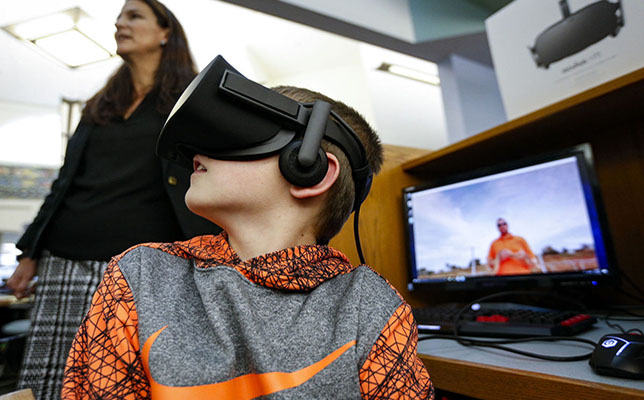Iowa Elementary School Launches Virtual Reality Science Curriculum

Image Credit: The Quad-Times, Andy Abeyta.
An Iowa elementary school within the Davenport Community School District has begun using virtual reality (VR) headsets in their science classes.
Several Buffalo Elementary School students used Oculus Rift headsets and tested out VR curriculum from VictoryVR, which recently launched its first installation of a VR science curriculum. The curriculum, designed for students in grades 5 to 8, covers the solar system, the water cycle, ocean life and more.
In one VR experience, CNN’s International Hero of the Year Chad Pregracke “takes students on a virtual field trip to a garbage barge as he cleans up the Ohio River near Louisville, KT,” according to VictoryVR. As one of the modules in the Water Cycle, students learn “how our nation’s rivers are integral to our well-being as they leave their classroom and stand on a barge with river-activist Pregracke.”
Buffalo Elementary is the first city in the county to incorporate virtual reality into the Next Generation Science Standards curriculum, the Quad-City Times reported. So far, VR is used in two of the 23 science units offered at the school.
A grant from the Bechtel Trust will help pay for the school to use the headsets over the next five years. The grant proposal listed three main benefits to implementing the technology:
- Removes distractions and helps students focus on a lesson plan;
- Student are “transported” or immersed in the area of study; and
- The VR experience help instructors explain a topic and captivates students’ interests.
To learn more, read the Quad-City Times report.
About the Author
Sri Ravipati is Web producer for THE Journal and Campus Technology. She can be reached at [email protected].